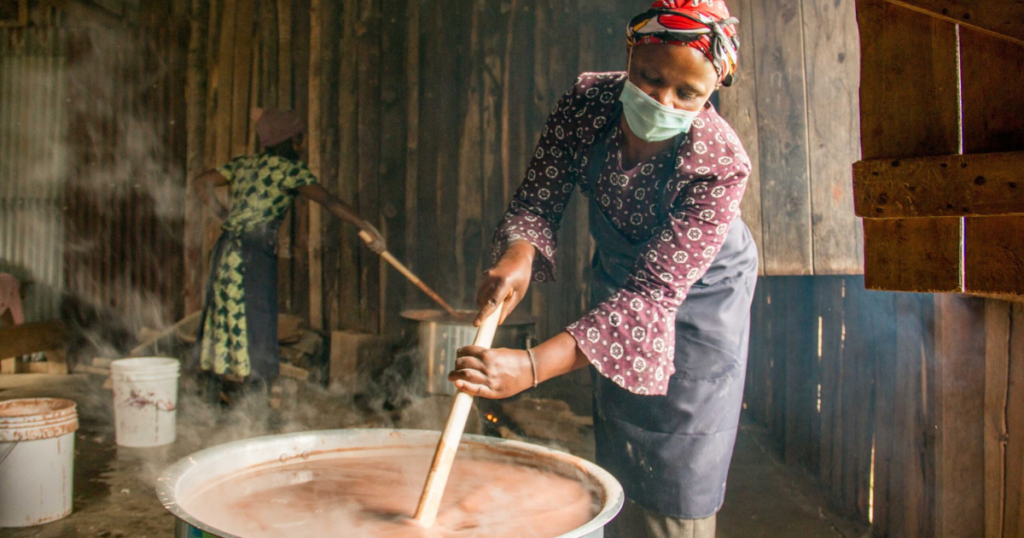
March Volunteer Network Roundup!
By GO HumanityTeams in our Food Security Project (FSP) reported 50 events in March, serving 14,848 individual beneficiaries and giving out 22,467 meals!
Additional GO Humanity Service Teams held 19 more service events.
New Teams
- The Ethical Society of Zambia joined GO Teams to build disaster resiliency for their community, which struggles with clean water scarcity, floods, and droughts caused by climate change.
- Olouguelemo in Bandiagara, Mali recently upgraded from a GO Team to a Food Security Project team. They organize to make their township more resilient to climate change and famine by implementing erosion control techniques in crop fields; expanding reservoirs; creating gain banks; and helping to regenerate fields and forests!
Team of the Month: Atheists Helping the Homeless Phoenix (AHH Phoenix)
This Arizona team is back in business after having their operations disrupted by the Superbowl in February. They resumed their schedule of twice-monthly giveaways of toiletries and hygiene items to unsheltered people in a downtown Phoenix park. Volunteers assisted attendees in “shopping” for their needs. Coffee and snacks were provided as well.
Photo of the Month: Humanist Alliance Philippines International (HAPI)
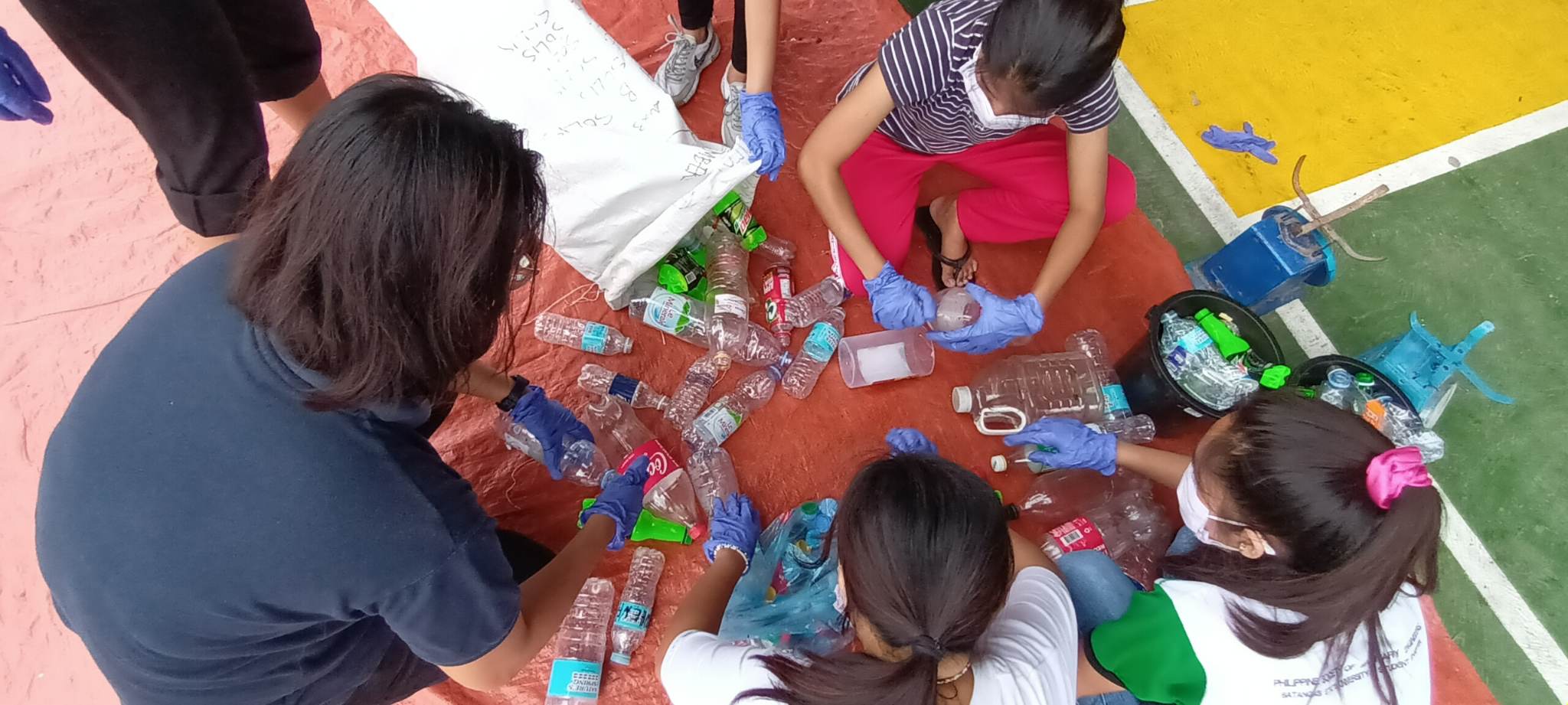
A team of students from Batangas State University College did a Waste Analysis and Characterization Study (WACS) in Lobo, Batangas to better understand the types of waste produced in the area, including recyclable, residual, biodegradable, and special waste.
Data showed that despite the segregation of waste, it was all mixed up and disposed of in landfills—a counterproductive measure due to a lack of proper waste management facilities. So HAPI started a program giving composting bags for the WACS to distribute to the village, reducing how much biodegradable waste is improperly disposed.
HAPI has chapters all over the Philippines. Here’s what else they were up to in March:
- A Community Cleanup action for International Day of Action for Rivers. Evidence shows that plastic waste in rivers comes from households and other sources near them, so HAPI placed trash bags in strategic areas of Batangas City to decrease how much ended up in open spaces.
- Jolly Party with the Kids: Children of HAPI Bulacan were invited to a kiddie party thrown by a longtime donor. 33 kids and team members were served brunch, received food packs, and played games. They were also visited by Jollibee, the giant red bee.
- A Fire Prevention Month Awareness program for 80 children at an elementary school in Pinagbakahan, Malolos City, Bulacan. Speakers discussed home fire safety, how to prevent hazards, how to stay safe during a fire. Kids received homemade snacks purchased by HAPI from a mother struggling to support a son with a disability.
- Supporting Local Farmers: As food prices continue to rise, HAPI feels it is important to remember the needs of local farmers and vendors, many of which sell produce on the street or door-to-door. HAPI bought watermelon, sweet potatoes, long beans, eggplant, and bottle gourd from these merchants and distributed them to 70 families in the area.
- HAPI Alabang Fund Raising: This local chapter supported its programs by making and selling 156 graham balls, 27 pairs of turon, and a few pairs of bracelets.
Fanm Viktim
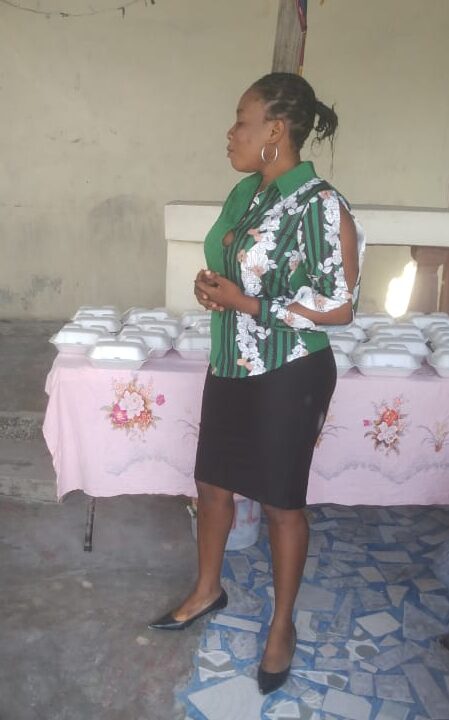
This new team has been responding to the crisis in Haiti by building an advocacy network to combat violence and give out cash assistance.
Their events in March consisted of…
- A Day Solidarity with Women where volunteers ate with women and distributed envelopes of money.
- A Sexual Orientation Education program teaching about respecting people with different sexual orientations.
- An anti-religious indoctrination program for children. Fanm Viktim believes that the power of religion in Haiti households causes ignorance and contempt for civic duty. Their program focused on civic awareness and how to safeguard children’s futures in a just environment.
- A Youth and Sport program. Fanm Viktim had conversations with young girls about how sport can be helpful for their futures. One participant identified that sport can protect a young girl against prostitution and other bad practices. Another recognized that sport contributes a lot to creativity and collective positivism.
- Conversations with women and their husbands about relationships. Fanm Viktim advised as to the best ways to have successful relationships and how to better educate children.
- An International Women’s Day cash distribution. 18 mothers received envelopes containing $20 USD—a significant amount given the exchange rate in Haiti.
Donate to support this team here.
Humanist Society of Greater Phoenix (HSGP)
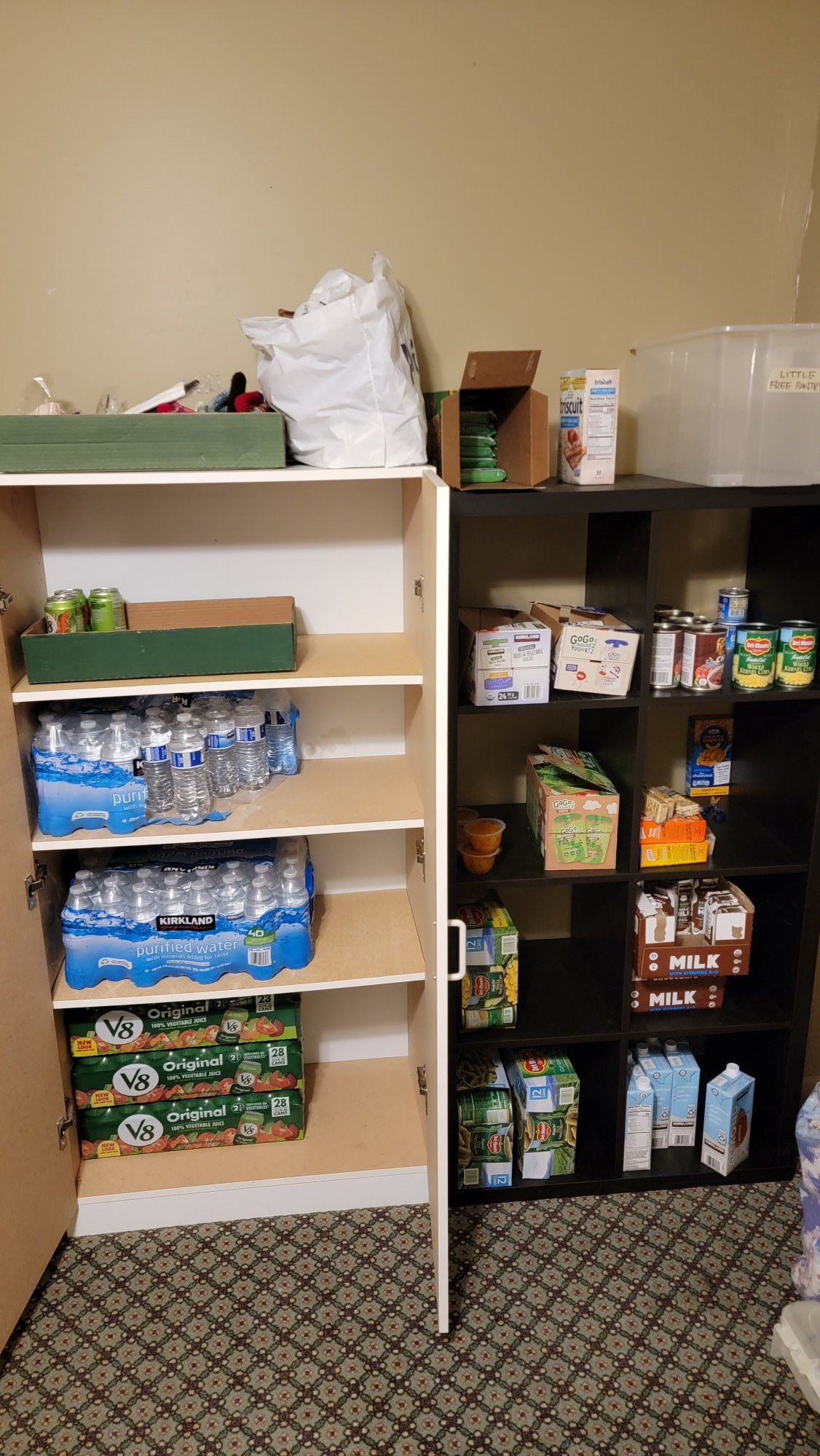
This Arizona team’s main initiative in March was tending to their Little Free Pantry. About 6 members stopped by throughout the month to keep the pantry stocked with a variety of foods and drinks. They placed a mix of shelf-stable, non-perishable food that is ready to take and eat, along with food that can be taken home to make. Volunteers also helped with shopping, managing donations, checking the pantry suggestion box, and fundraising.
They also made improvements to the storage area for food supplies inside HSGP’s community center.
Central Florida Mutual Aid (CFLMA)
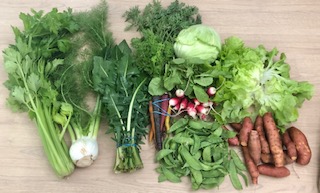
This team met seven times in March, rescuing food from partner meal services and distributing it wherever needed. This included low-income neighborhoods; communities of unhoused neighbors; Title IX schools; and other areas where people experience food insecurity.
The Food Drive
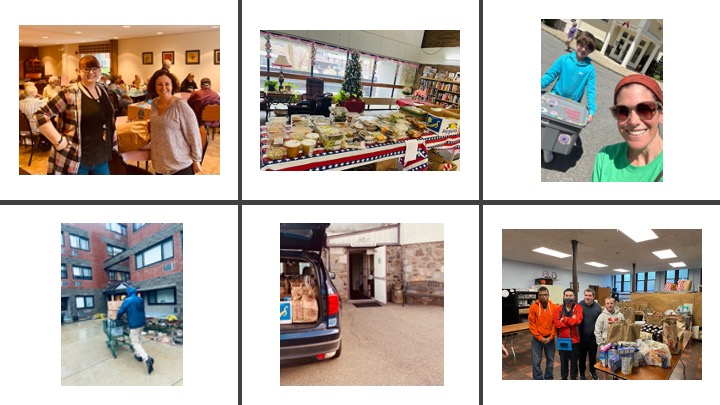
This Melrose, MA team rounded up their stats from 2022, showing that they distributed 227,000 pounds of food in their second full year of operation! They delivered 54,000 pounds (27 tons) of good fresh food to neighbors.
This March, they did 212 food rescues and delivered food in 10 communities, including:
- Levi Gould & Fuller Housing, a senior housing residence, where service coordinators provided a weekly “café” gathering for residents to receive rescued treats, produce, and bread.
- Steele House, a low-income housing complex. The Food Drive offers a “No Cost Grocery Store” in the lobby community space there twice monthly. Resident volunteers coordinate internal details and deliver groceries to home-bound residents.
- Milano Senior Center, where The Food Drive delivers baked goods for a popular Wednesday bingo, plus a breakfast and lunch service.
- Pantry of Hope at First Baptist Church, currently serving 30 to 50 guests monthly. The team’s volunteers at Melrose High School’s Special Education Department delivers rescued and donated items weekly for a Tuesday distribution.
- A Servant Heart’s Food Pantry at Faith Evangelical Church, which serves 30 to 50 guests monthly. The Food Drive delivers there multiple times weekly.
- Cefalo Retirement Complex, a senior housing complex that also hosts a weekly coffee gathering for rescued treats.
CAFE Food Rescue
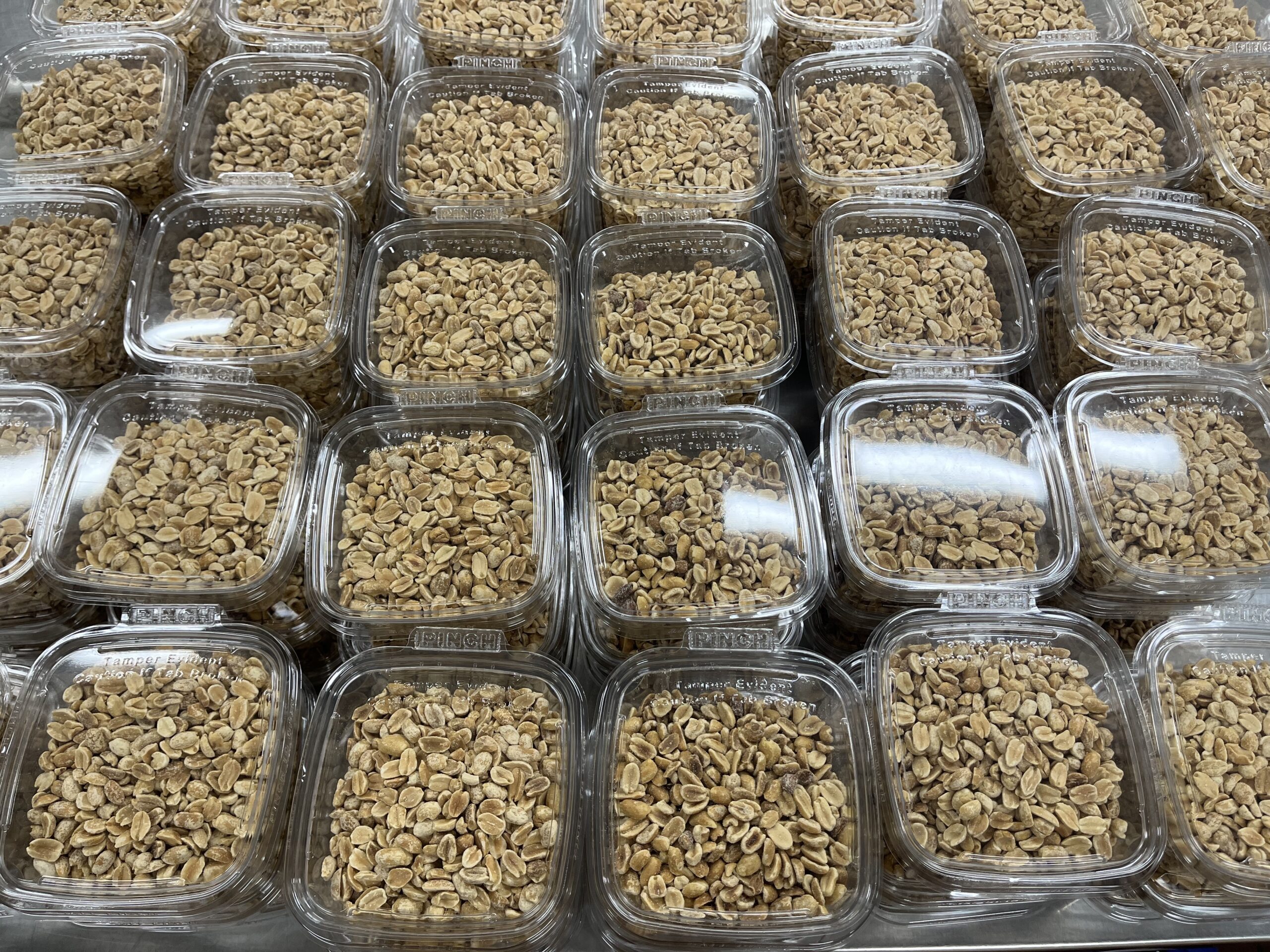
This food rescue team in Summit County, CO collected and distributed 4,428 pounds of food in March. 2,344 pounds came from the largest food pantry in their community. There were a few times the food bank had milk that would reach its “sell by” date before they could distribute it, so CAFE Food Rescue distributed it through a home delivery “backpack” program and through a neighborhood clubhouse. They also distributed surplus onions, apples, and sweet potatoes.
The team is also working on a new packaging facility in Frisco, CO’s community center.
Atheists United
This team held their monthly food giveaway in Los Angeles’ Historic Filipinotown. Groceries were collected, transported, sorted, packed, and distributed as food kits to 149 households. Diapers were distributed for 161 children and menstrual products were also given to 103 households.
Southeastern Virginia Atheists, Skeptics & Humanists (SEVASH)
SEVASH maintains two Little Free Pantries in the towns of Newport News and Norfolk. In March, 11 known volunteers contributed 560 pounds of food at a cost of $497. With funds from GO Humanity, they were better able to reimburse contributors and increase contribution levels.
Central Ohio United Non-Theists (COUNT)
COUNT volunteers worked their ongoing monthly shifts at The Ronald McDonald House, which provides housing and meals for families with sick children. COUNT volunteers have contributed 1,987 hours to RMH since 2013.
COUNT also served dinners and cleaned at the Van Buren Center shelter. 113 volunteers have worked 1,326 hours at 97 events at the Van Buren Center to date.
Olouguelemo
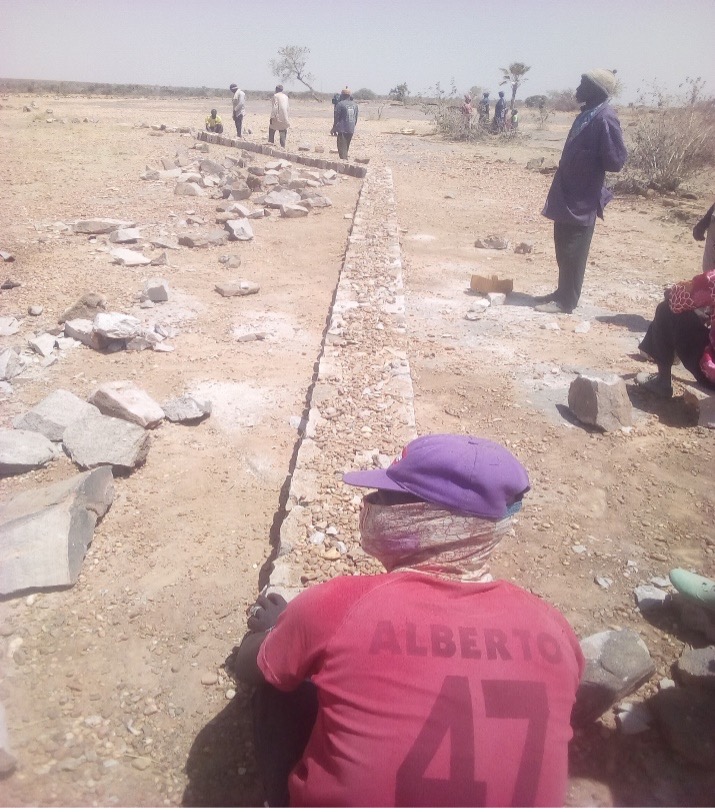
Five member groups of this Malian team built stone contour lines for rice and millet fields, which will restore the soil and increase the yield of rainfed crops while protecting from soil degradation. This will help make small communities in the area resilient against food shortages caused by droughts and geopolitical strife. Each group received food during their work day.
Austin Atheists Helping the Homeless (AHH)
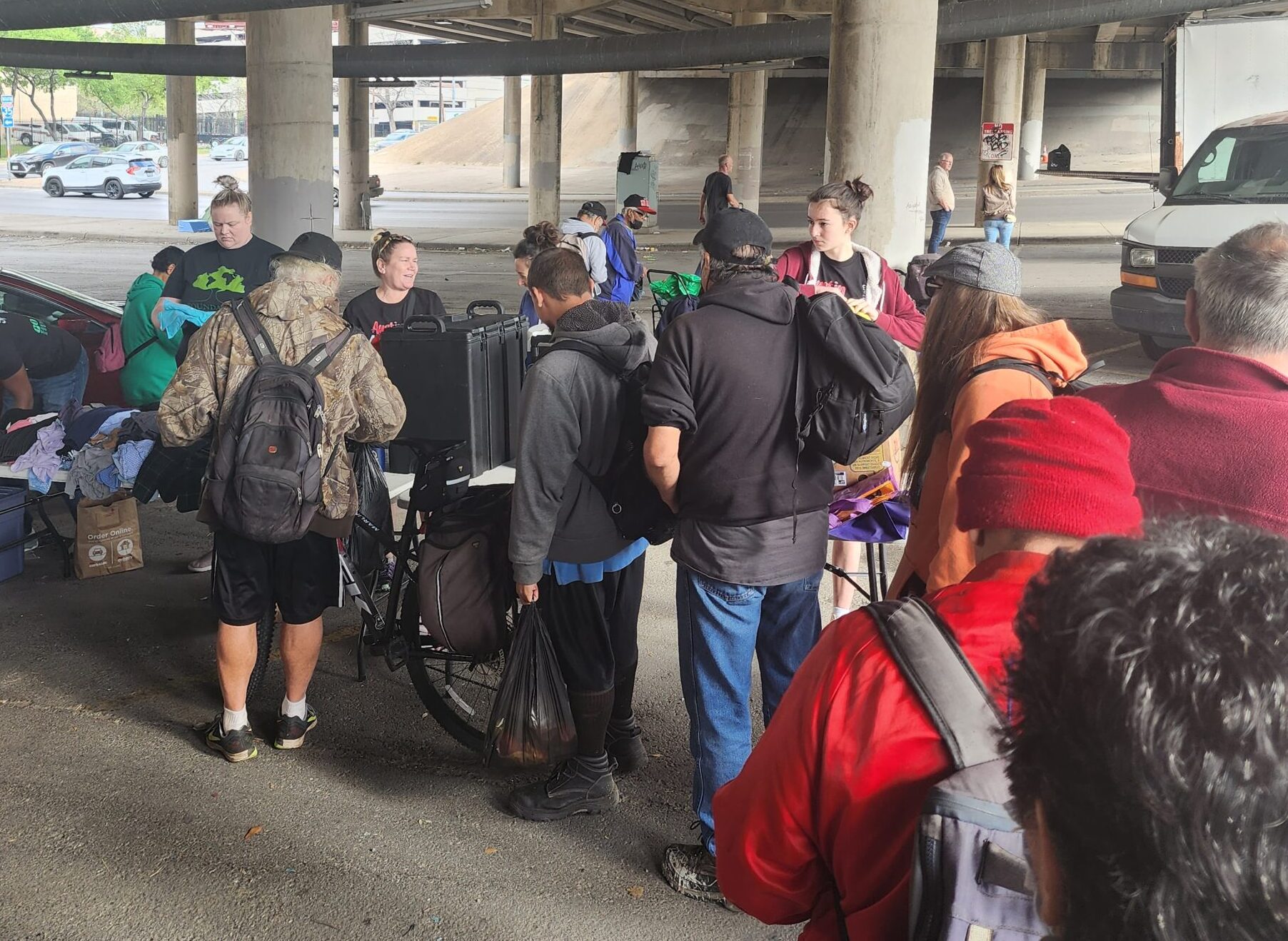
Once a month, volunteers from this team hit up various Austin, TX locales to distribute aid to those experiencing homelessness. They gave out 270 bags packed with food and necessities in March. With the increased Food Security Grant and other donations, Austin AHH is trying to put a higher focus on food items they give out while slightly lowering the number of hygiene items, since they discovered other local groups can fulfill those needs.
They had several notable donations, including a large amount of 350 Austin shirts and artwork by past GO Humanity Board Chair Clare Wuellner. The team said they were impressed at how many recipients enjoyed the art!
The team is also still handing out 31-day bus passes each month.
Austin AHH says they are rapidly approaching pre-COVID numbers of recipients, so they’ll be continuing to increase the amount of aid they distribute.
CORMII Community Development Corporation
This team in Rockingham County, North Carolina meets every Thursday to hold a curbside food distribution. In March, they distributed 4,180 pounds of food to 321 individuals in 173 households.
Humanists of Tallahassee
This Florida team met nine times in March to assemble and distribute snack/hygiene packs consisting of a granola bar, water, applesauce, pudding, peanut butter crackers, Vienna sausages, washcloth, soap, shampoo, deodorant, razor, toothbrush, toothpaste, period products, and socks.
Atheists Helping the Homeless DC
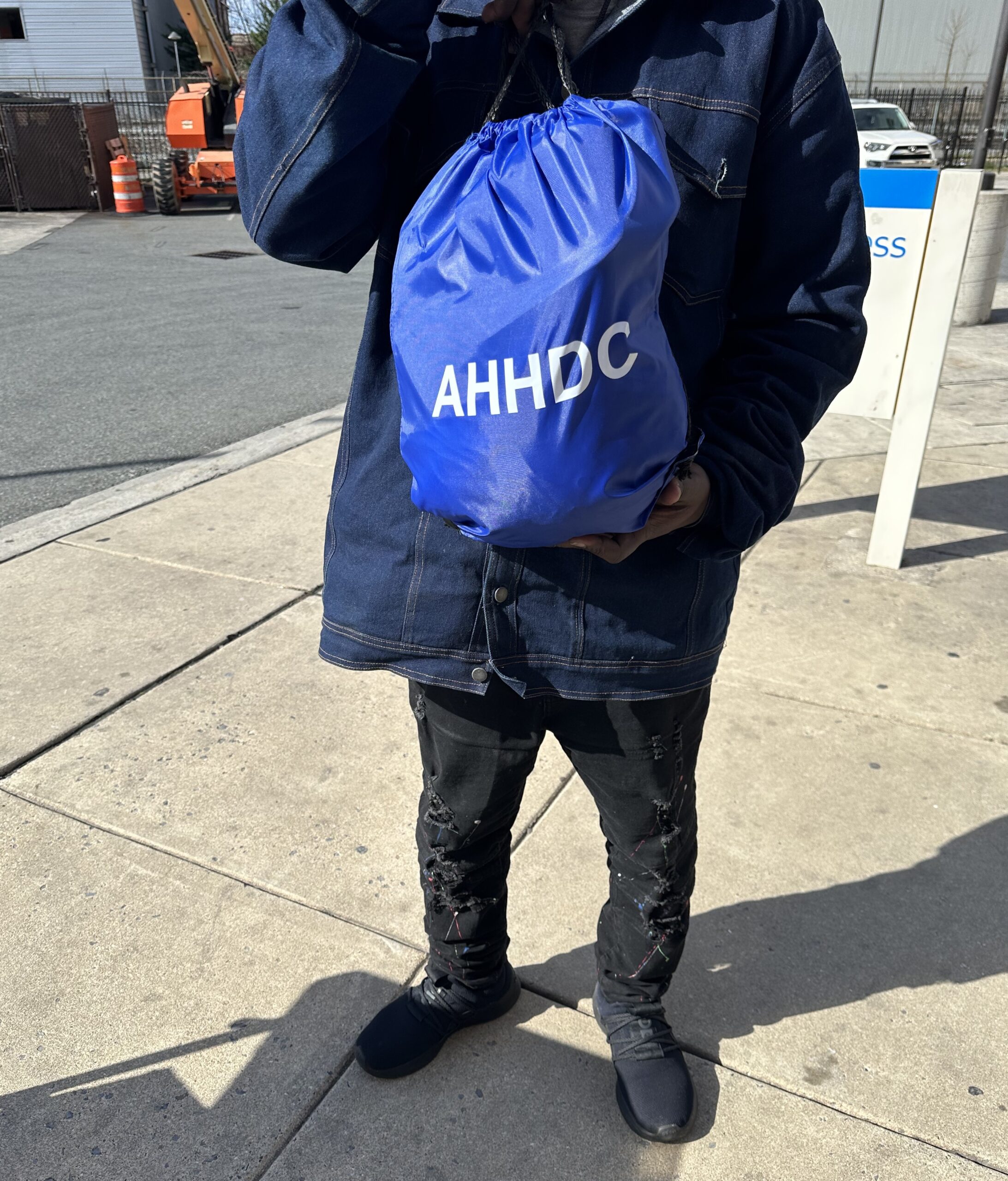
This team in Washington, DC held their monthly distribution event at a local shelter, braving a cold, windy day to give out about 100 kits of socks, flashlights, toothbrushes, toothpaste, and soap. They also gave out 20 pairs of shoes; 9 blankets; 25 backpacks; plus canvas bags, blankets, hard candy, and sweaters.
The team tracked the demographics of the people they served, and discovered nearly 40% were women, most of whom appeared over 30 years old. A few clients volunteered that they were veterans. Many races were represented, but Hispanic-appearing clients predominated. African Americans and Caucasian-appearing clients made up about 50%.
SociologyEats!
SociologyEats! is part of the sociology department at Texas A&M University. In March, they distributed $700 in cash to students who requested help with food and living expenses.
They also now host a weekly shared meal program to provide hot lunches for students, staff, and faculty. The program is designed to increase food security, social support, and a sense of community. Roughly 20 people ate at each one, and they estimate 30 different individuals received a meal during the month.
Blue Trunk Garden Network
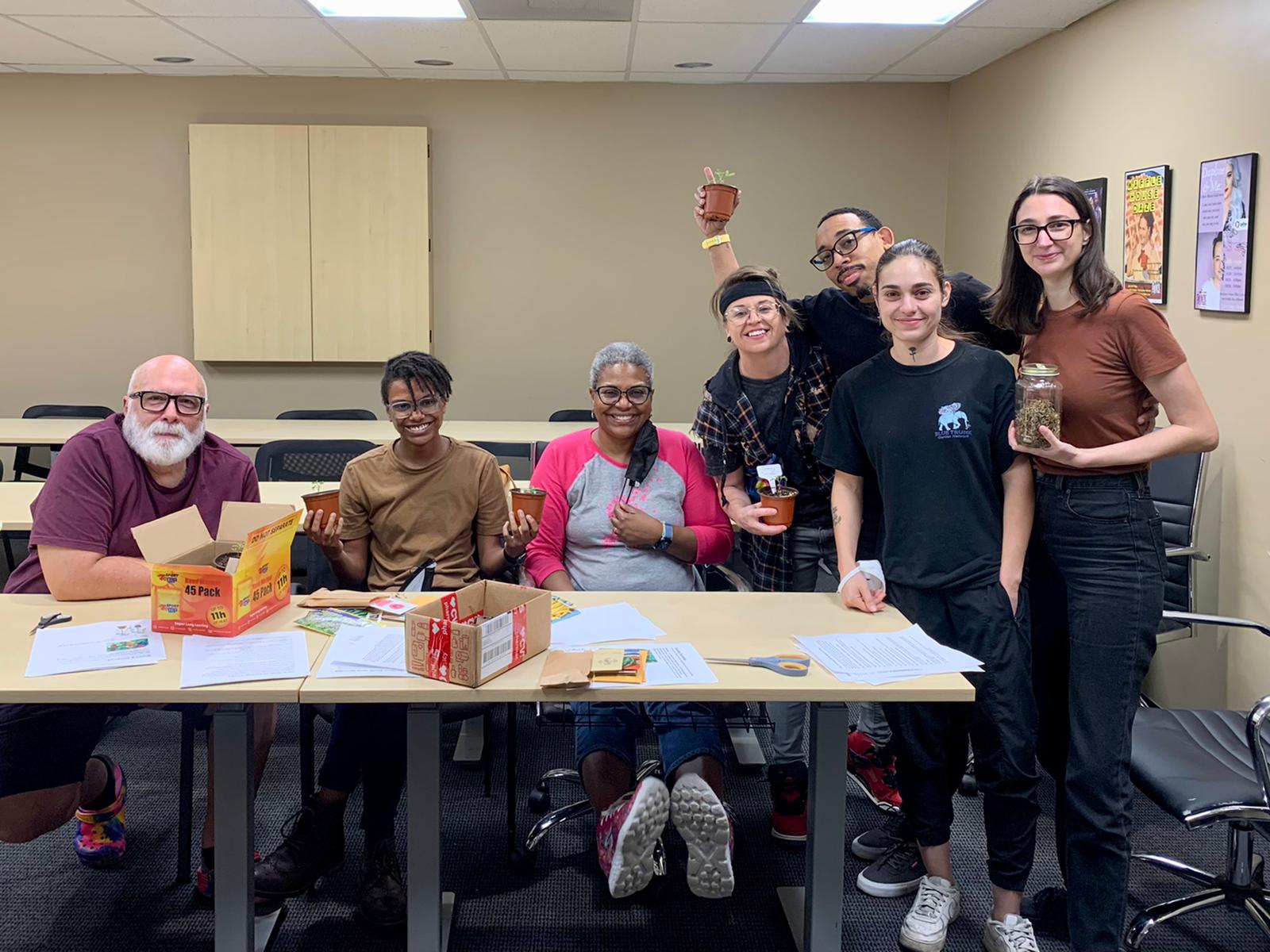
This new team in central Florida runs community gardens and shares the yields with community members in their network. In March, they harvested culantro, aloe, salvia, and longevity spinach. They then planted more longevity spinach plus banana, carrots, malana, fire bush, and papaya.
Blue Trunk later held a hands-on workshop and roundtable discussion (pictured above) where attendees learned how to start vegetable gardens at home. They had refreshments and seedlings for all participants, plus plant-related craft projects for children.
Susquehanna Valley Ethical Society (SVES)
Volunteers with this Mifflinburg, Pennsylvania team volunteered for a local food bank, sorting boxes of food, checking donations for freshness and safety, and stocking shelves. 72 boxes of nonperishables were packed to be delivered to 72 families/individuals.
Humanists of West Florida (HWF)
Humanists of West Florida works weekly alongside groups like Food Not Bombs to provide food, clothing, and toiletries. They distributed about 48 bags of nutrition, toiletries, medicine, and clothing at each of their four events in March.
At one event, a HWF crew member had secured the cooperation of a government agency that puts telephones and tablets into the hands of low-income recipients. Close to a dozen attendees registered on-site.
Chania Primary School
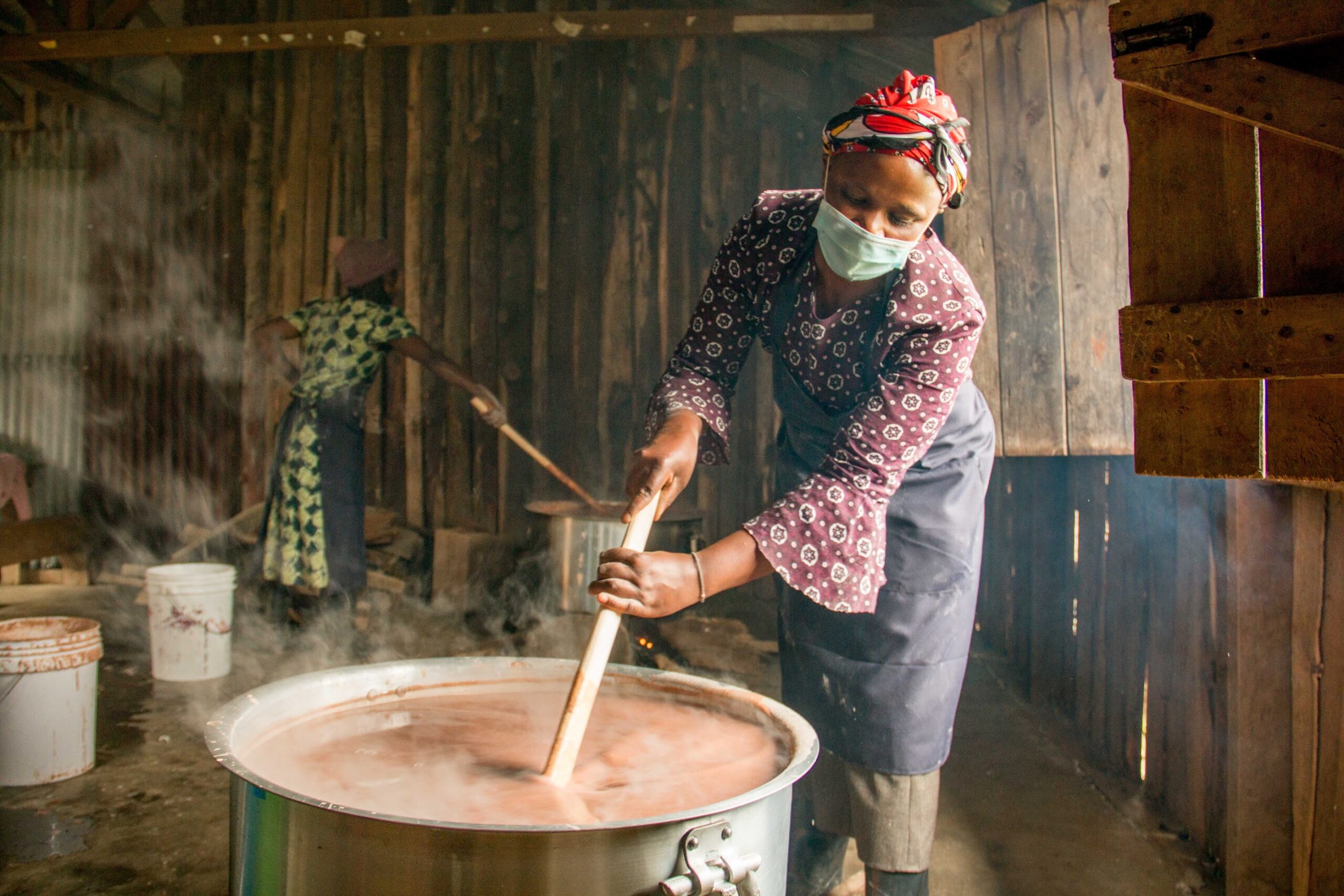
This team in rural Kenya is responsible for a partner-driven meal program centered on the delivery of a daily warm meal for every student. In March, they served over 14,000 meals to more than 700 vulnerable children with support from our Food Security Project.
Kenya Humanist Alliance (KHA)
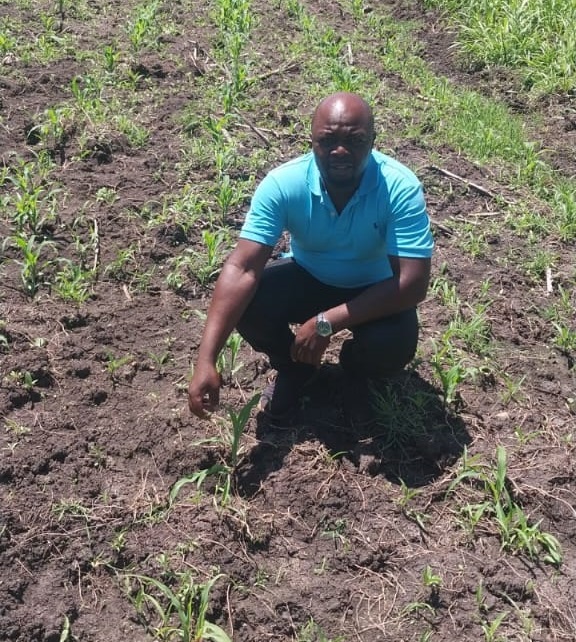
This team in Kisimu County, Kenya donates food to orphanages and homes for kids abandoned by their parents. In March, they…
- Prepared farms for planting food crops. Using a tractor paid for with GO Humanity grants, the team ploughed and cultivated parcels of land. This season, they plan to grow maize, millet, sorghum, and vegetables.
- Harvesting bananas and distributing them to impoverished kindergarten students.
- Growing maize for future food distributions. Kenya has finally started experiencing sufficient rainfalls, which the team thinks will lead to a good harvest.
- Planting nappier grass for a goat-rearing project which will supply milk to orphans.
KHA has been expanding its impact countrywide by donating maize, rice, cooking oil, and sugar to schools in the Western Region of Kenya. The team writes: “We are trying our best to reach out to the needy children who are going to school without meals to have lunch while in school. Most of these children travel long distances to reach schools while their parents and guardians live in abject poverty of earning less than $1 per day while having many dependents. We are grateful to GO Humanity for ensuring that our project reach many parts of the country.”
Central New York Humanist Association
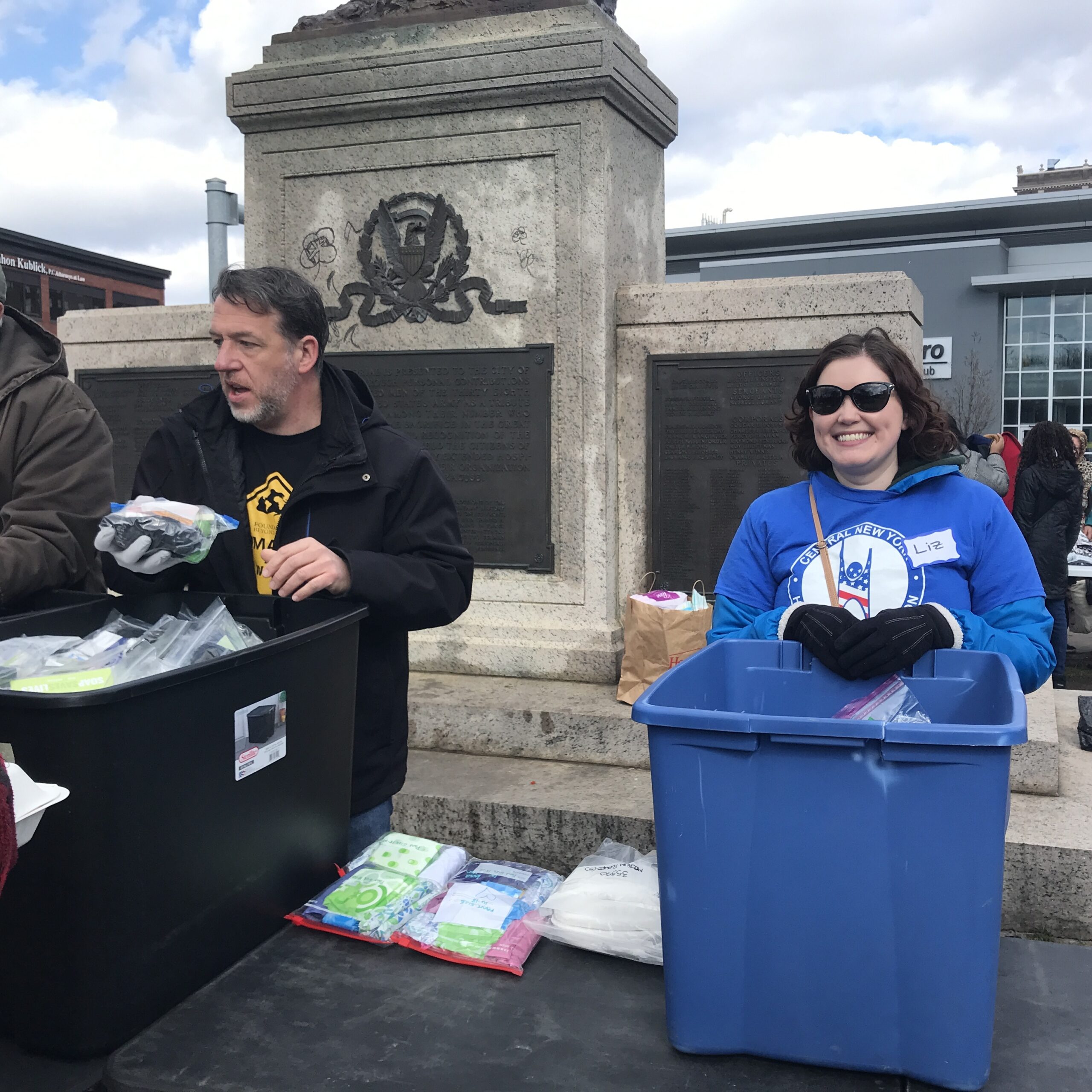
This team in Syracuse, NY has been meeting weekly at a middle school to make sandwiches which they give to unsheltered people in a park—along with toiletries, clothes, and other necessities.
360 Eats
This team in Safety Harbor, FL met with partners five times to serve a total of 500 nutritious meals at a low-income senior site and a food desert.
Central Florida Freethought Community
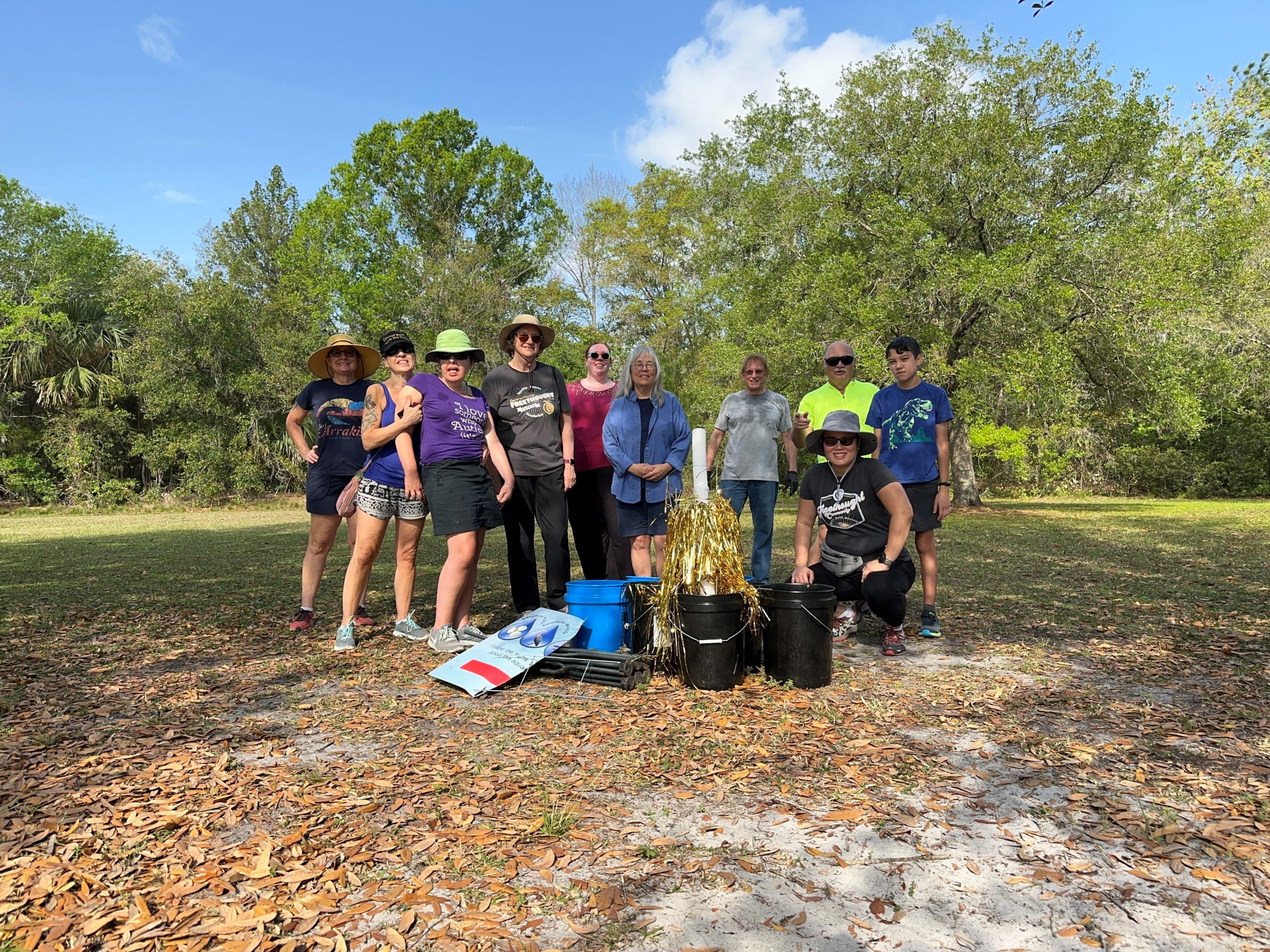
This Orlando, FL team braved he heat to clean up their adopted stretch of highway!
Kasese Humanist School (KHS)
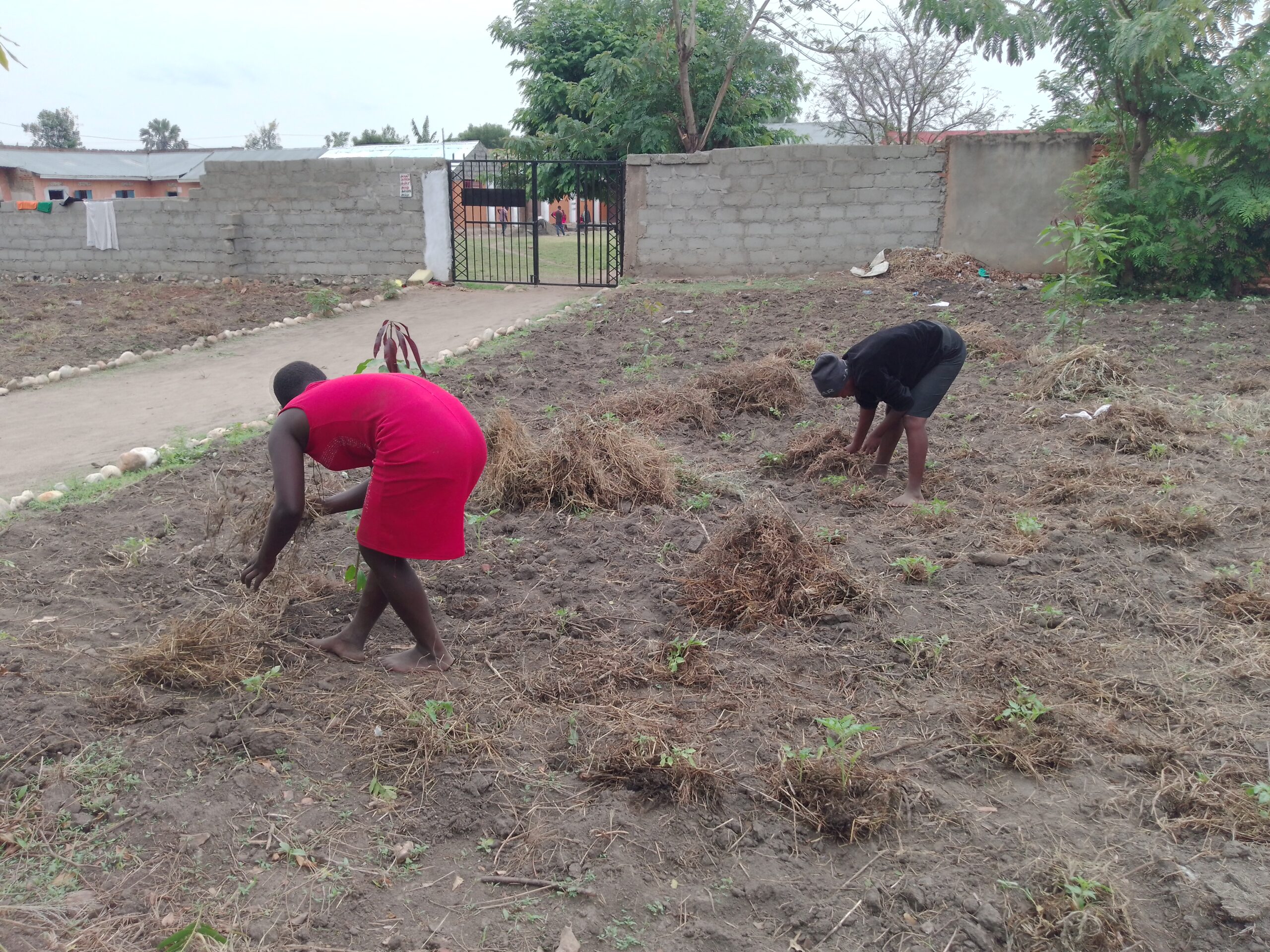
This Food Security Project team in Uganda maintains gardens which feed their community.
There has recently been massive clearing of cultivable land for active farming at most of their farmlands. Students at their secondary section began a huge tomato planting initiative supported with funds from our Food Security Project. They bought seedlings, farm implements, fertilizers, and a knapsack sprayer machine to keep pests away.
The staffs at their Bizoha school, Kahendero campus, and Rukoki campus are all trying their best to participate in planting whatever crops they like. Some have planted corn, beans, matoke bananas, and fruit trees.
Tomato harvests are ongoing since one of the schools’ staffs had planted tomatoes in phases. Her efforts are making it possible for KHS’s kitchens at the schools to have these in abundance.
With the onset of the wet season, KHS is intensifying its gardening initiatives, planting more dodo, sukuma wiki, eggplants, and garden eggs.
